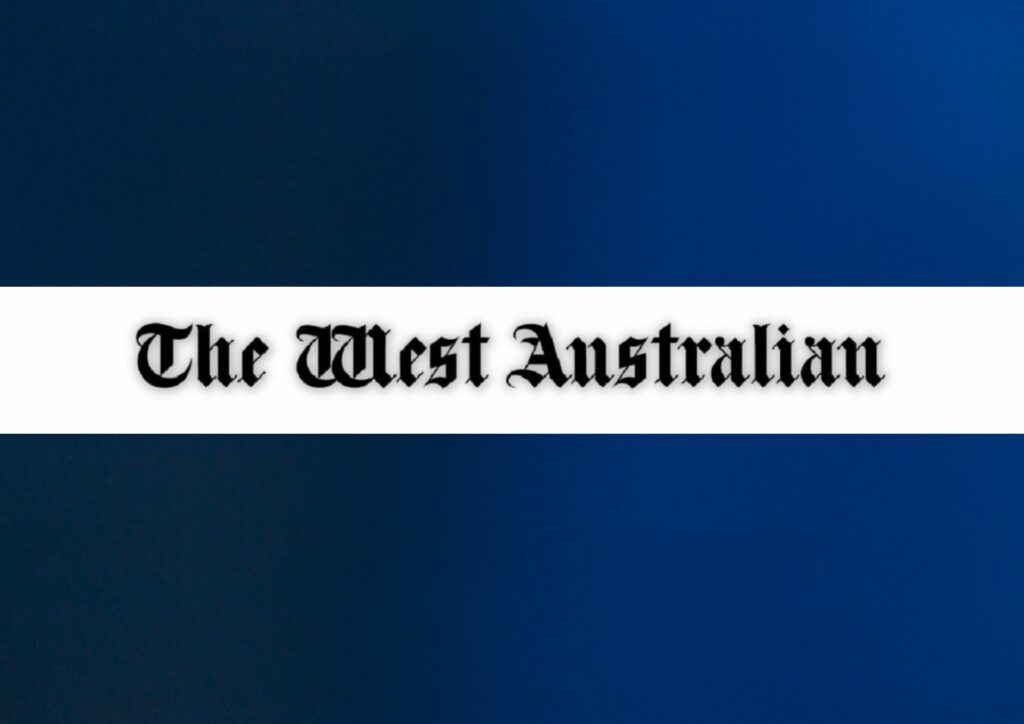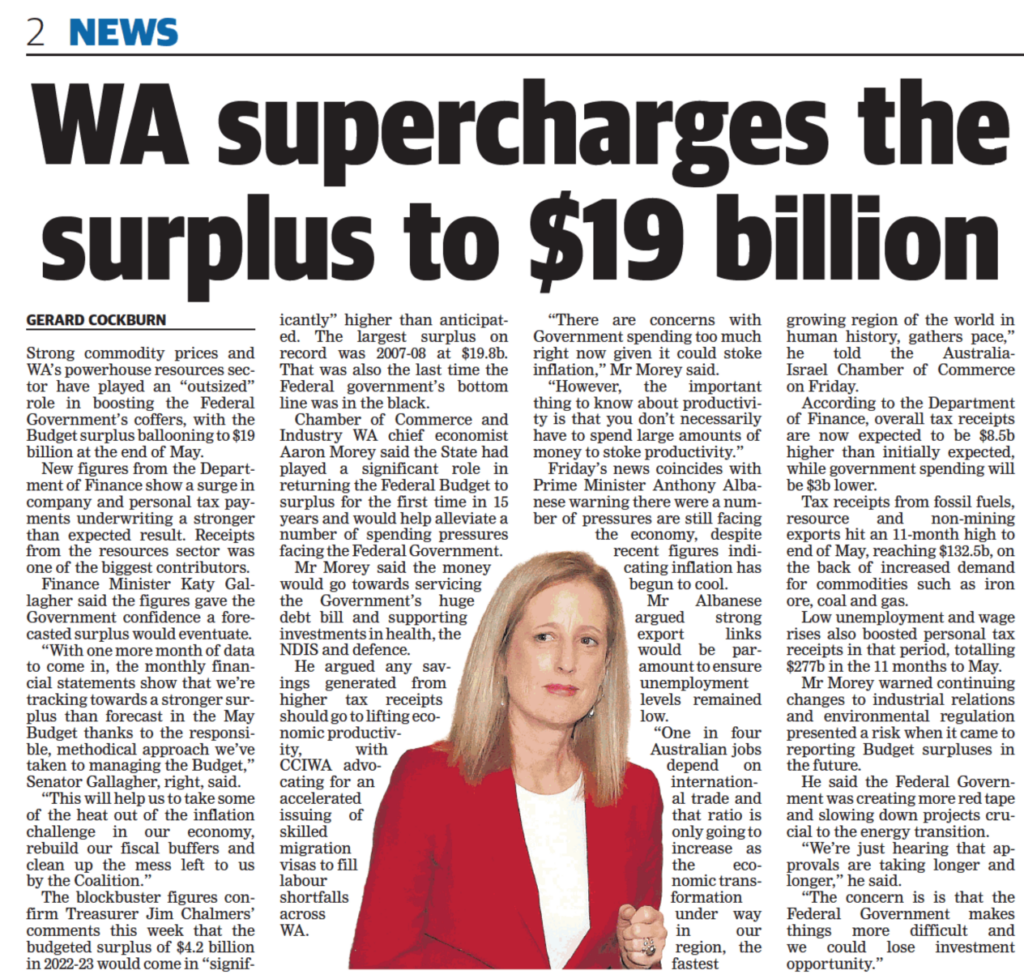
Article by Gerard Cockburn courtesy of the West Australian.

Strong commodity prices and WA’s powerhouse resources sector have played an “outsized” role in boosting the Federal Government’s coffers, with the Budget surplus ballooning to $19 billion at the end of May.
New figures from the Department of Finance show a surge in company and personal tax payments underwriting a stronger than expected result. Receipts from the resources sector was one of the biggest contributors.
Finance Minister Katy Gallagher said the figures gave the Government confidence a forecasted surplus would eventuate.
“With one more month of data to come in, the monthly financial statements show that we’re tracking towards a stronger surplus than forecast in the May Budget thanks to the responsible, methodical approach we’ve taken to managing the Budget,” Senator Gallagher, right, said.
“This will help us to take some of the heat out of the inflation challenge in our economy, rebuild our fiscal buffers and clean up the mess left to us by the Coalition.”
The blockbuster figures confirm Treasurer Jim Chalmers’ comments this week that the budgeted surplus of $4.2 billion in 2022-23 would come in “significantly” higher than anticipated. The largest surplus on record was 2007-08 at $19.8b. That was also the last time the Federal government’s bottom line was in the black.
Chamber of Commerce and Industry WA chief economist Aaron Morey said the State had played a significant role in returning the Federal Budget to surplus for the first time in 15 years and would help alleviate a number of spending pressures facing the Federal Government.
Mr Morey said the money would go towards servicing the Government’s huge debt bill and supporting investments in health, the NDIS and defence.
He argued any savings generated from higher tax receipts should go to lifting economic productivity, with CCIWA advocating for an accelerated issuing of skilled migration visas to fill labour shortfalls across WA. “There are concerns with Government spending too much right now given it could stoke inflation,” Mr Morey said.
“However, the important thing to know about productivity is that you don’t necessarily have to spend large amounts of money to stoke productivity.”
Friday’s news coincides with Prime Minister Anthony Albanese warning there were a number of pressures are still facing the economy, despite recent figures indicating inflation has begun to cool.
Mr Albanese argued strong export links would be paramount to ensure unemployment levels remained low.
“One in four Australian jobs depend on international trade and that ratio is only going to increase as the economic transformation under way in our region, the fastest growing region of the world in human history, gathers pace,” he told the Australia-Israel Chamber of Commerce on Friday.
According to the Department of Finance, overall tax receipts are now expected to be $8.5b higher than initially expected, while government spending will be $3b lower.
Tax receipts from fossil fuels, resource and non-mining exports hit an 11-month high to end of May, reaching $132.5b, on the back of increased demand for commodities such as iron ore, coal and gas.
Low unemployment and wage rises also boosted personal tax receipts in that period, totalling $277b in the 11 months to May.















